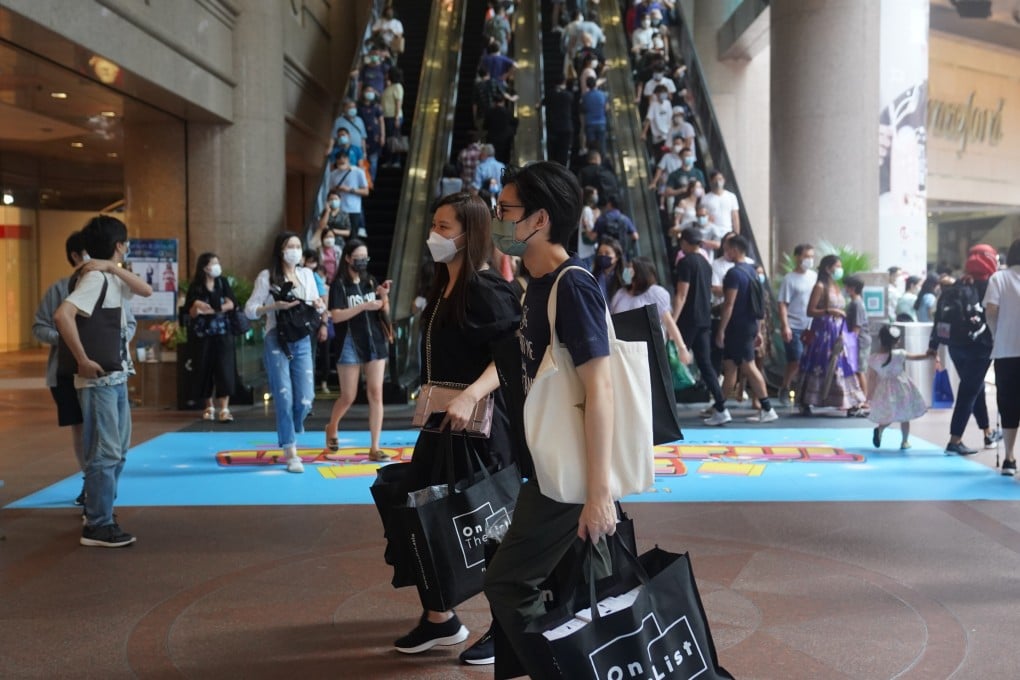As Omicron spreads, Hong Kong malls stand to lose up to 30 per cent of sales as lockdowns, social distancing curbs crimp footfall
- Tougher measures to contain the virus are likely to upend retail sales, which have been rebounding nicely over the past year
- Analysts expect dwindling footfall to impact malls across the city, not just in affected locations, as measures bite

Analysts said losses could spread industry-wide, beyond the existing affected areas in Kowloon and New Territories, as health experts predict the current fifth wave of outbreak in the city could result in as many as 28,000 daily cases and higher death toll by June.
The city logged a record 1,325 cases on Friday, having multiplied from fewer than 30 at the start of the year, with Kwai Chung, Sham Shui Po, Sha Tin, Tai Po and Tuen Mun among the worst-hit locations. The government last week unveiled the most stringent measures yet to contain infections caused by the Delta and Omicron variants.

“I would expect an overall 20 to 30 per cent fall in retail sales during the current outbreak, (barring) any potential consumption coupon or fiscal stimulus from the government,” said Martin Wong, a director and head of research and consultancy for Greater China at Knight Frank. “As these cases are on the rise and spreading across the city, eventually the impact to different areas would be similar.”
The resurgence will dampen sentiment and derail a recovery in consumer spending. Retail sales in Hong Kong climbed for an 11th month in December, according to government statistics, with sales rising 8.1 per cent to HK$353 billion (US$45.2 billion) in 2021 or just under HK$30 billion a month on average.
The surge in daily infections has forced the government to cap public gatherings to two people, ban private gatherings of more than two families, and close more public venues such as houses of worship and salons. Shopping centres and supermarkets will only serve vaccinated customers from February 24.
Before these stricter rules, neighbourhood malls in affected areas where the government imposed multiple lockdowns likely have lost a sizeable chunk of their customers as residents were prevented from leaving their homes.
